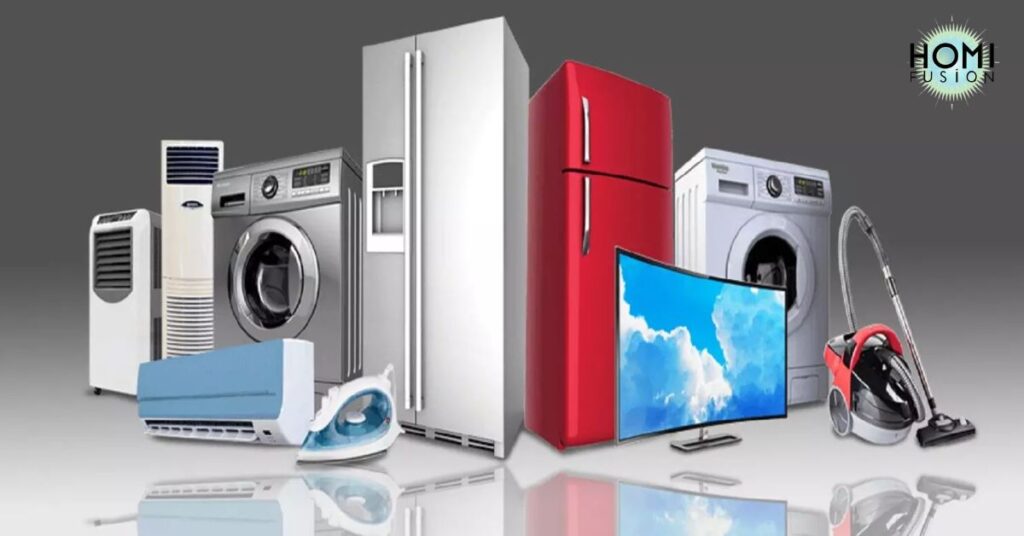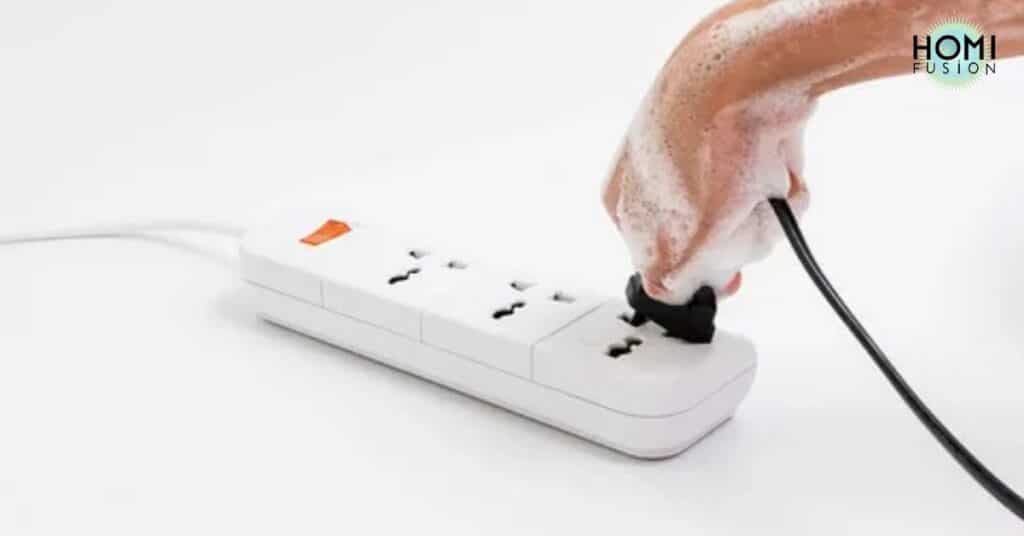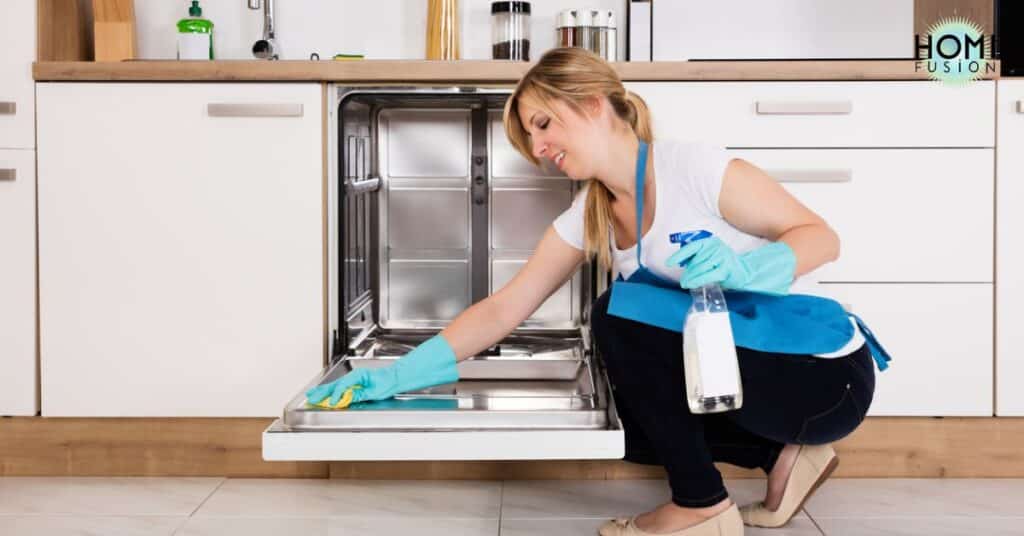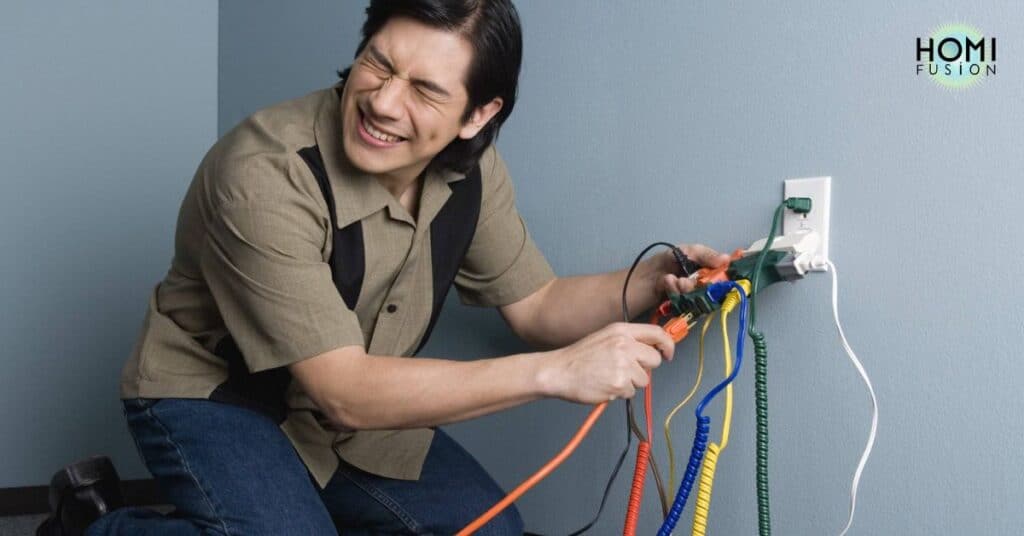Preventing electric shocks in the kitchen is vital for safety during cooking and appliance use. Water and electricity can pose a dangerous combination in kitchens. Simple measures like keeping appliances away from water and ensuring dry hands when handling electrical devices greatly reduce the risk of electric shock.
Another crucial step to prevent electric shock is avoiding overloading outlets with multiple high-power appliances which can cause overheating and hazards. Regularly inspect power cords and outlets for damage to maintain kitchen safety and minimize the risk of electric shock.
Install Electrical Wall Outlet Covers
It covers is a simple yet effective way to enhance safety in your home. These covers provide a barrier that prevents accidental contact with live electrical sockets reducing the risk of electrical shocks, especially for young children.
They also help keep moisture and debris out of outlets which can prevent short circuits or electrical fires. Outlet covers are easy to install and are available in various designs to match your decor. Make sure to use outlet covers throughout your home especially in kitchens bathrooms and areas accessible to children to create a safer living environment.
Move Electrical Appliances as Far From Water Sources as Possible
Place electrical appliances a minimum of three feet away from water sources to reduce the risk of exposure to moisture. This distance helps minimize the chance of accidental contact between water and electrical components decreasing the potential for electrical hazards.
When using appliances near water ensure hands and surfaces are dry to further enhance safety and prevent electrical shocks. By maintaining this separation you can create a safer environment in areas with water sources such as kitchens and bathrooms.
Bigger Appliances Should Have a Dedicated Outlet
It is important to use a separate outlet dedicated solely to larger kitchen appliances like refrigerators and dishwashers. This prevents overloading of circuits and reduces the risk of electrical hazards. Each major appliance should have its own dedicated outlet to ensure it receives adequate power without causing strain on the electrical system.

Avoid using extension cords or sharing outlets with other high-power appliances to maintain safety and prevent potential fires or electrical issues. Having dedicated outlets for bigger appliances helps ensure reliable and safe operation in your kitchen.
Also, Take A Look At: HOW TO PAIR KITCHEN AND DINING LIGHTS
Use Extension Cords Sparingly
Limit the use of extension cords to temporary solutions only such as for short-term appliance connections. Using extension cords excessively can pose fire hazards and overload electrical circuits. Each appliance should ideally have its own designated outlet to avoid overloading and ensure safety.
Avoid daisy-chaining extension cords together as this can increase the risk of electrical hazards. Consider hiring a professional electrician to install additional outlets if needed for permanent appliance setups.
Have Your Home’s Electrical System Inspected
Regularly have your home’s electrical system inspected by a qualified electrician to ensure safety and prevent potential hazards. This inspection helps identify any outdated wiring faulty connections or signs of wear and tear.
Addressing these issues promptly can prevent electrical shocks fires and other safety risks. Schedule inspections especially for older homes or if you notice any electrical issues like flickering lights or tripping breakers. Investing in regular inspections ensures the overall safety and reliability of your home’s electrical system.
Disconnect Appliances by the Plug Itself to avoid electric shock
Always disconnect appliances by pulling on the plug rather than the cord to avoid damage and ensure safety. Pulling on the cord can weaken the connection and expose wires leading to potential electrical hazards.
This practice also helps preserve the integrity of the appliance’s electrical components. Remember to grip the plug firmly and pull it straight out from the outlet. By disconnecting appliances properly you can extend their lifespan and reduce the risk of electrical accidents.
Never Handle Cords and Plugs With Wet Hands
Avoid handling cords and plugs with wet hands to prevent electrical shocks or accidents. Water increases conductivity and can allow electricity to flow through your body causing injury. Always dry your hands thoroughly before touching any electrical devices or outlets.

This simple precaution helps ensure your safety when dealing with electricity. Remember, wet hands and electricity do not mix so keep them dry when handling cords or plugs.
Use The Right-Sized Power Cord For Your Appliance
Ensure you use a power cord that matches the energy requirements of your appliance to prevent overheating or damage. Refer to the manufacturer’s recommendations for the correct cord size to ensure safe operation.
- Select a power cord that matches the energy load specified for your appliance to ensure safe operation.
- Using an undersized cord can lead to overheating and potential fire hazards.
- Conversely, using an oversized cord is unnecessary and can be inefficient.
- Check the manufacturer’s recommendations or appliance manual for the correct cord size.
Replace damaged or frayed cords promptly to maintain safety and prevent electrical hazards.
Also take a look at: HOW TO DECORATE FLOATING SHELVES IN THE KITCHEN
Avoid Water As Much As Possible While Working With Appliances
Minimize water exposure when using appliances to reduce the risk of electrical hazards. Keep appliances and surfaces dry to prevent accidental contact with water and electricity. Avoid placing electrical devices near sinks or other sources of water to prevent potential shocks or short circuits.
Use caution when cleaning or using appliances in wet areas to maintain safety. By limiting water exposure you can create a safer environment when working with electrical appliances.
Do Not Plug Multiple Appliances Into One Outlet
Avoid plugging multiple high-power appliances into a single outlet to prevent overloading and potential hazards. Each appliance should have its own dedicated outlet to ensure safe operation.
Overloading outlets can lead to overheating tripped breakers or even electrical fires. Distribute appliances across different outlets to balance the electrical load and reduce risks. Using one appliance per outlet helps maintain safety and prevents electrical issues in your home.
Unplug Appliances When They Are Not In Use
Remember to unplug appliances when not in use to save energy and reduce the risk of electrical hazards. This simple practice helps prevent accidents and extends the lifespan of your appliances.
- Unplug appliances when not in use to save energy and reduce the risk of electrical hazards.
- This simple practice helps prevent standby power consumption and extends the lifespan of appliances.
- Reduce the chance of electrical accidents or fires caused by faulty appliances.
- Lower your electricity bills by cutting down on standby power usage.
- Make it a habit to unplug appliances like toasters coffee makers and chargers when not in use.
Check Your Power Outlets
Regularly inspect your power outlets for any signs of damage such as cracks discoloration or sparking sounds when in use. Addressing issues promptly can prevent electrical hazards and ensure safety in your home. Consider hiring a professional electrician to perform a thorough inspection if you notice any abnormalities.
Test outlets with a voltage tester to ensure they are functioning correctly and safely. By checking your power outlets regularly you can maintain a safe electrical environment and prevent potential accidents.
Clean Your Appliances
Regularly clean your appliances to remove dirt grease and debris that can accumulate over time. This helps maintain their efficiency and prevents potential electrical malfunctions. Use mild cleaners and avoid getting water into electrical components to prevent damage.

Clean behind and underneath appliances to remove dust and debris that can affect performance. Keeping your appliances clean ensures they operate safely and prolong their lifespan.
Do Not Put Out Kitchen Fires With Water to avoid electric shock
Avoid using water to extinguish kitchen fires as it can spread grease fires and cause electrical hazards. Keep a fire extinguisher rated for kitchen fires on hand for quick and effective extinguishing. Use baking soda or a fire blanket to smother small grease fires instead of water.
Never use water on electrical fires to prevent electrical shock or short circuits. Practice fire safety and have an evacuation plan in place for kitchen emergencies.
Frequently asked questions
How to safely use electricity in the kitchen?
Keep appliances away from water sources and ensure hands are dry when handling electrical devices. Avoid overloading outlets, use proper extension cords, and unplug appliances when not in use to prevent electrical hazards.
Why do I keep getting electric shocks in my kitchen?
You may be getting electric shocks in your kitchen due to faulty wiring or damaged appliances. Have a professional electrician inspect your kitchen to identify and resolve any electrical issues.
How can an electric shock be prevented?
To prevent electric shocks, keep appliances dry and away from water, use grounded outlets, avoid damaged cords, and handle electrical devices with dry hands.
Why am I getting shocked by my sink?
You might be getting shocked by your sink due to faulty wiring or improper grounding nearby. Contact an electrician to inspect and fix any electrical issues for safety.
Conclusion
Preventing electric shocks in the kitchen is essential for maintaining a safe cooking environment. By following simple safety measures such as keeping appliances away from water sources using dedicated outlets for larger appliances and avoiding overloading electrical circuits you can significantly reduce the risk of electrical hazards.
It is important to unplug appliances when not in use, use the right-sized power cords and regularly inspect power outlets for signs of damage. Additionally, practicing caution with water and avoiding using water to extinguish kitchen fires are crucial safety precautions. Taking these steps not only protects against electric shocks but also minimizes the risk of fires and ensures the longevity of kitchen appliances. By prioritizing safety and implementing these preventive measures you can create a safer and more secure kitchen environment for you and your family.







